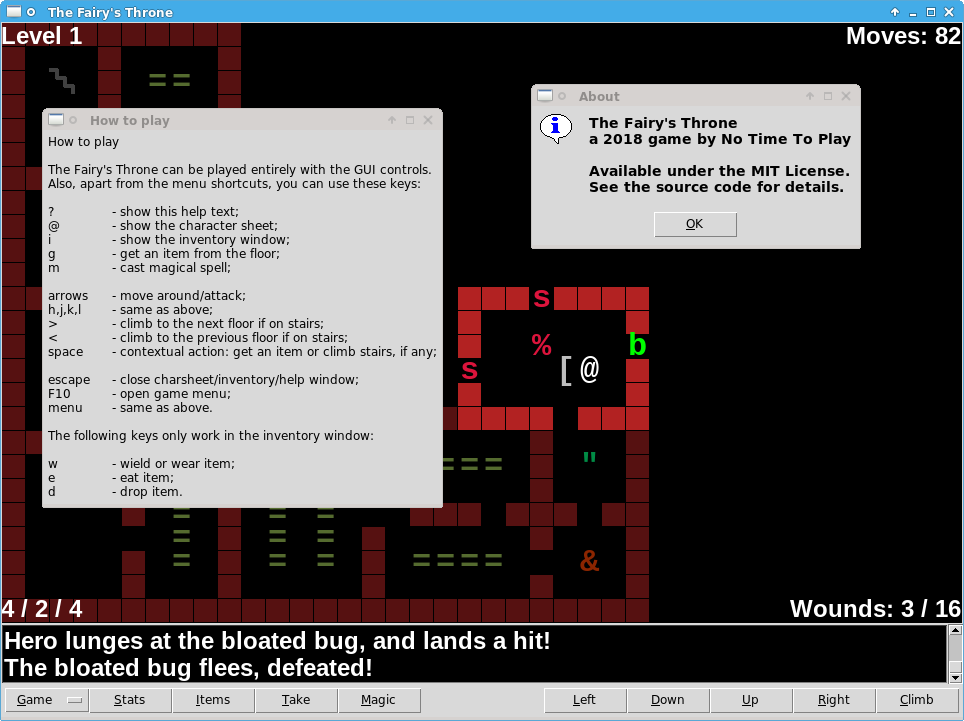Weekly Links #206: learning edition
Hello, everyone. So much coding happened this week, my regular progress report became obsolete in just a couple of days. That also meant less energy to follow the news, though I did write nearly a thousand words of what should become a fun new project. More details in my next progress report; for now, let's just say the experience taught me a couple of things:
- keep an eye out for game mechanics that can add lots of depth with little coding;
- watch out for gameplay elements that don't pull their own weight, such as less than useful spells.
Oh! Oh! There was another thing. Earlier this week, fluffy complained about people being baffled by their recent games awarding points, and keeping a score, as if they didn't know what those are anymore. And maybe I'm just being my cynical self, but how could they? For years, game developers have been tripping over each other to make "immersive" games that don't even have a HUD. Indies and AAA devs alike have been so obsessed with "experience", they forgot the importance of giving the player a sense of progression. Heck, for a while they couldn't seem to understand that players need useful feedback. Remember the debate over showing the numbers in RPGs?
Anyway, on to the news.
The plan was to take it easy this weekend, something I usually fail at, but being offline on Saturday afternoon meant not having that much to do. So among other things I added a couple of small but important features to the game:

Yep, it’s just a help screen and about dialog, but they’re good to have, and with that I have little left to add in the way of user interface. Which means I can spend the rest of February adding game content, hopefully enough to publish a fully playable version before growing tired of it. Watch this space!
In other news, over on Gamasutra there's a blog post on making a game design simpler, and sure enough it starts with the same quote from Saint Exupery I used in the Design by Elimination chapter from my first gamedev book. Not to repeat all the same points, the method recommended here strikes me as overly complex in itself. What I do is cut, cut, cut, because while working on a game it quickly becomes obvious which mechanics take more effort than they're worth. I also keep an eye out for game elements that don't interact much with others. Last but not least, I watch the user interface: when you have too many buttons to fit comfortably on the screen, you're doing too much. And yes, you do want on-screen buttons in a world where touchscreens are commonplace, not to mention players can always use reminders of what commands are available in the game.
Case in point: the contrast between my work-in-progress roguelike, The Fairy's Throne, and my previous one, Electric Rogue, which made an excellent impression while being a lot simpler. Not that it took any less time to make — in fact, it took longer. Glittering Light, now that one was quick, but also not nearly as well-received. A game design can also be too simple, even for a minimalist designer like me.
Moreover, even though The Fairy's Throne leaves behind many features of its predecessor Tomb of the Snake, the new additions amount to more, contrary to what it looked like initially. But that's okay, too, because making things simpler isn't a goal in itself.
Think of it as pruning a tree, and you'll do fine.
Raphaël Lucas alerts us that a Ludum Dare game I couldn't help but notice last month now comes with a making-of. The interesting part? It's a good old "blobber" — a first-person RPG with 2.5D graphics, except running in the browser, and very smoothly at that! Note however all the extra work required to make and then render the corridor graphics compared to my latest game, even though the trig is simpler here, with only 4 directions instead of 8. Naturally, animation doesn't help either. But hey, the result looks awesome, and it sounds like all the effort will pay off when the time comes to add more content. So it's worth a read — and a play.
Last but not least, the week's biggest news is that the CRPG Book Project is complete, and still a free PDF (even under a Creative Commons license!) despite being over 500 pages of full-color goodness. We're talking a comprehensive history of computer role-playing games, including their context and import along with sometimes very touching personal stories. All of it, of course, lavishly illustrated with screenshots and more. It's worth mentioning that the project lead is from... Brazil, if I understood correctly? and most collaborators are also not from English-speaking countries, so this treasure has the quality of presenting a unique perspective on computer games on top of everything else.
I grabbed a preview version last spring, but with dozens of newly added pages it's probably best to read it all again. Enjoy!